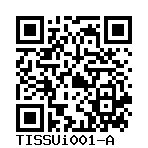HUMIMIC101, StemUse101, SU101
TISSUi001-A
General
Donor Information
General Donor Information |
|
| Sex | male |
| Age of donor (at collection) | 50-54 |
| Ethnicity | Caucasian |
Phenotype and Disease related information (Donor) |
|
| Diseases | No disease was diagnosed.
|
Karyotyping (Donor) |
|
| Has the donor karyotype been analysed? |
Yes
Karyotyping method:
Molecular karyotyping by SNP array
http:// |
External Databases (Donor) |
|
| BioSamples | SAMEA5909230 |
Ethics
| Has informed consent been obtained from the donor of the embryo/tissue from which the pluripotent stem cells have been derived? | Yes |
| Was the consent voluntarily given? | Yes |
| Has the donor been informed that participation will not directly influence their personal treatment? | Yes |
| Can you provide us with a copy of the Donor Information Sheet provided to the donor? | Yes |
| Do you (Depositor/Provider) hold the original Donor Consent Form? | No |
| If you do not hold the Donor Consent Form, do you know who does? | Yes |
| Confirm that consent was obtained by a qualified professional | Yes |
| Has the donor agreed to be re-contacted? | Yes |
| Has the donor been informed about how her/his data will be protected? | Yes |
| Please indicate whether the data associated with the donated material has been pseudonymised or anonymised. | pseudonymised |
| Does consent explicitly allow the derivation of pluripotent stem cells? | Yes |
| * Does consent pertain to a specific research project? | No |
| Does consent prevent CELLS DERIVED FROM THE DONATED BIOSAMPLE from being made available to researchers anywhere in the world? | No |
Does consent permit research by | |
| an academic institution? | Yes |
| a public organisation? | Yes |
| a non-profit company? | Yes |
| a for-profit corporation? | Yes |
| How may genetic information associated with the cell line be accessed? | Open Access |
| Will the donor expect to receive financial benefit, beyond reasonable expenses, in return for donating the biosample? | No |
| Has a favourable opinion been obtained from a research ethics committee, or other ethics review panel, in relation to the Research Protocol including the consent provisions? | Yes |
| Name of accrediting authority involved? | Ethikkomission der Ärztekammer Berlin |
| Approval number | Eth 25/16 |
| Has a favourable opinion been obtained from a research ethics committee, or other ethics review panel, in relation to the PROPOSED PROJECT, involving use of donated embryo/tissue or derived cells? | Yes |
| Name of accrediting authority involved? | Ethikkomission der Ärztekammer Berlin |
| Approval number | Eth 25/16 |
| For generation of the cell line, who was the supplier of any recombined DNA vectors or commercial kits used? | |
hIPSC Derivation
General |
|
| Source cell type |
A peripheral blood cell with a single nucleus. This category includes lymphocytes and monocytes.
Synonyms
|
| Age of donor (at collection) | 50-54 |
| Collected in | 2016 |
Reprogramming method |
|
| Vector type | Non-integrating |
| Vector | Episomal |
| Genes | |
Vector free reprogramming |
|
Other |
|
| Derived under xeno-free conditions |
Unknown |
| Derived under GMP? |
Unknown |
| Available as clinical grade? |
Unknown |
Culture Conditions
| Surface coating | Matrigel/Geltrex |
| Feeder cells |
No |
| Passage method |
Enzymatically
Accutase
|
| O2 Concentration | 21 % |
| CO2 Concentration | 5 % |
| Medium |
Other medium:
Base medium: StemMACS™ iPS-Brew XF
Main protein source: Serum concentration: % |
| Has Rock inhibitor (Y27632) been used at passage previously with this cell line? | Yes |
| Has Rock inhibitor (Y27632) been used at cryo previously with this cell line? | Yes |
| Has Rock inhibitor (Y27632) been used at thaw previously with this cell line? | Yes |
Characterisation
Analysis of Undifferentiated Cells
| Marker | Expressed | Immunostaining | RT-PCR | Flow Cytometry | Enzymatic Assay | Expression Profiles |
| NANOG |
Yes |
|||||
| POU5F1 (OCT-4) |
Yes |
|||||
| TRA 1-60 |
Yes |
|||||
| SSEA-5 |
Yes |
|||||
| SOX2 |
Yes |
| Pluripotency Score | Novelty Score | |
| 39.20894 | 1.402739 |
Report
Morphology pictures
Differentiation Potency
In vitro directed differentiation
| Marker | Expressed |
| Myosin Heavy Chain 6 (MHC) |
Yes |
| Cardiac Troponin T (cTnT) |
Yes |
Protocol or reference
cTnT MHC SU101.png
left:Isocontrol; right: double staining: cTnT/MHC
In vitro directed differentiation
Microbiology / Virus Screening |
|
| HIV 1 | Negative |
| HIV 2 | Negative |
| Hepatitis B | Negative |
| Hepatitis C | Negative |
| Mycoplasma | Negative |
Genotyping
Karyotyping (Cell Line) |
|
| Has the cell line karyotype been analysed? |
Yes
KaryoStat™ analysis of TISSUi001-A (StemUse101) revealed the sample originated from a male individual. No chromosomal aberrations were found when comparing against the reference dataset.
Passage number: 17
Karyotyping method:
KaryoStat™ analysis
|
Other Genotyping (Cell Line) |
|



Login to share your feedback, experiences or results with the research community.